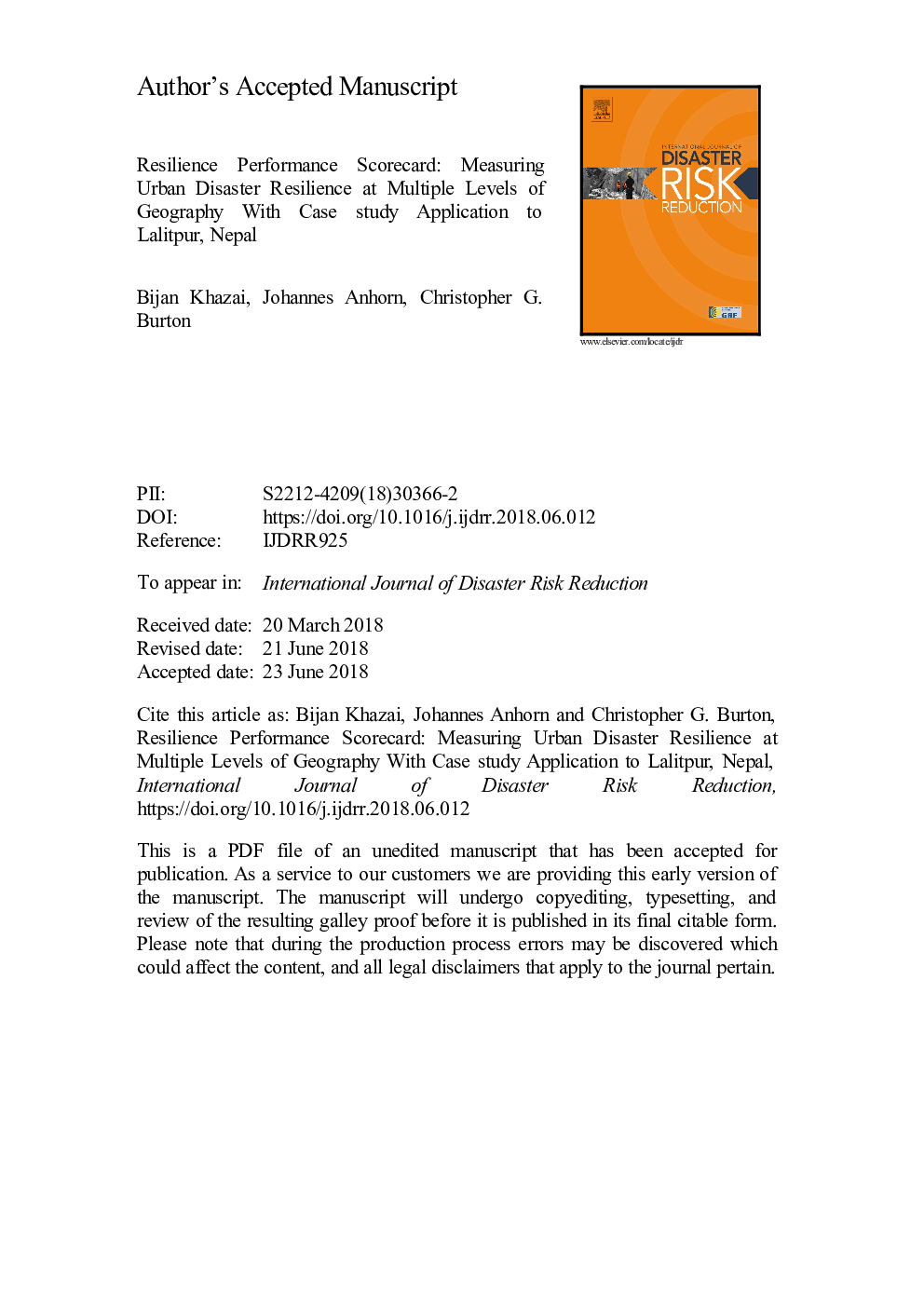| کد مقاله | کد نشریه | سال انتشار | مقاله انگلیسی | نسخه تمام متن |
|---|---|---|---|---|
| 7471208 | 1485138 | 2018 | 36 صفحه PDF | دانلود رایگان |
عنوان انگلیسی مقاله ISI
Resilience Performance Scorecard: Measuring urban disaster resilience at multiple levels of geography with case study application to Lalitpur, Nepal
ترجمه فارسی عنوان
کارت امتیازی عملکرد: سنجش قابلیت انعطاف پذیری فاجعه شهری در سطوح مختلف جغرافیا با استفاده از مطالعه موردی به لالیتپور، نپال
دانلود مقاله + سفارش ترجمه
دانلود مقاله ISI انگلیسی
رایگان برای ایرانیان
کلمات کلیدی
انعطاف پذیری شهری، کارت امتیازی، شاخص ها، تصمیم گیری مشارکتی، حکومت، مدیریت ریسک بحران،
موضوعات مرتبط
مهندسی و علوم پایه
علوم زمین و سیارات
فیزیک زمین (ژئو فیزیک)
چکیده انگلیسی
Making a city disaster-resilient means understanding the capacity of communities and decision-makers to actively adapt to, cope with, and transform in view of potential threats. Urban resilience needs to be considered a multi-dimensional concept, visible at multiple levels, and highly dynamic. Various indicator frameworks rely on pre-arranged indicator sets and beneficiaries to measure resilience neglecting the need to dynamically adjust indicators to the context of specific places or sub-city levels of geography. The purpose of this paper is to introduce an approach for measuring and monitoring resilience within cities. The Resilience Performance Scorecard (RPS) is a multilevel and multi-scale self-evaluation tool that empowers stakeholders to quantitatively assess resilience parameters based on primary source information. This scorecard approach will lead to a highly contextualized resilience appraisal reflecting the goals and objectives of the local actors and cannot be substituted by a ready-to-go, generic questionnaire. To demonstrate the RPS approach as a tool to guide and enable local policy makers and communities to establish priorities for more in-depth analysis, to allocate funds, and to develop emergency and disaster management programs more effectively, we implemented the RPS with city officials and community stakeholders of Lalitpur before and after the 2015 Nepal Earthquakes.
ناشر
Database: Elsevier - ScienceDirect (ساینس دایرکت)
Journal: International Journal of Disaster Risk Reduction - Volume 31, October 2018, Pages 604-616
Journal: International Journal of Disaster Risk Reduction - Volume 31, October 2018, Pages 604-616
نویسندگان
Bijan Khazai, Johannes Anhorn, Christopher G. Burton,
